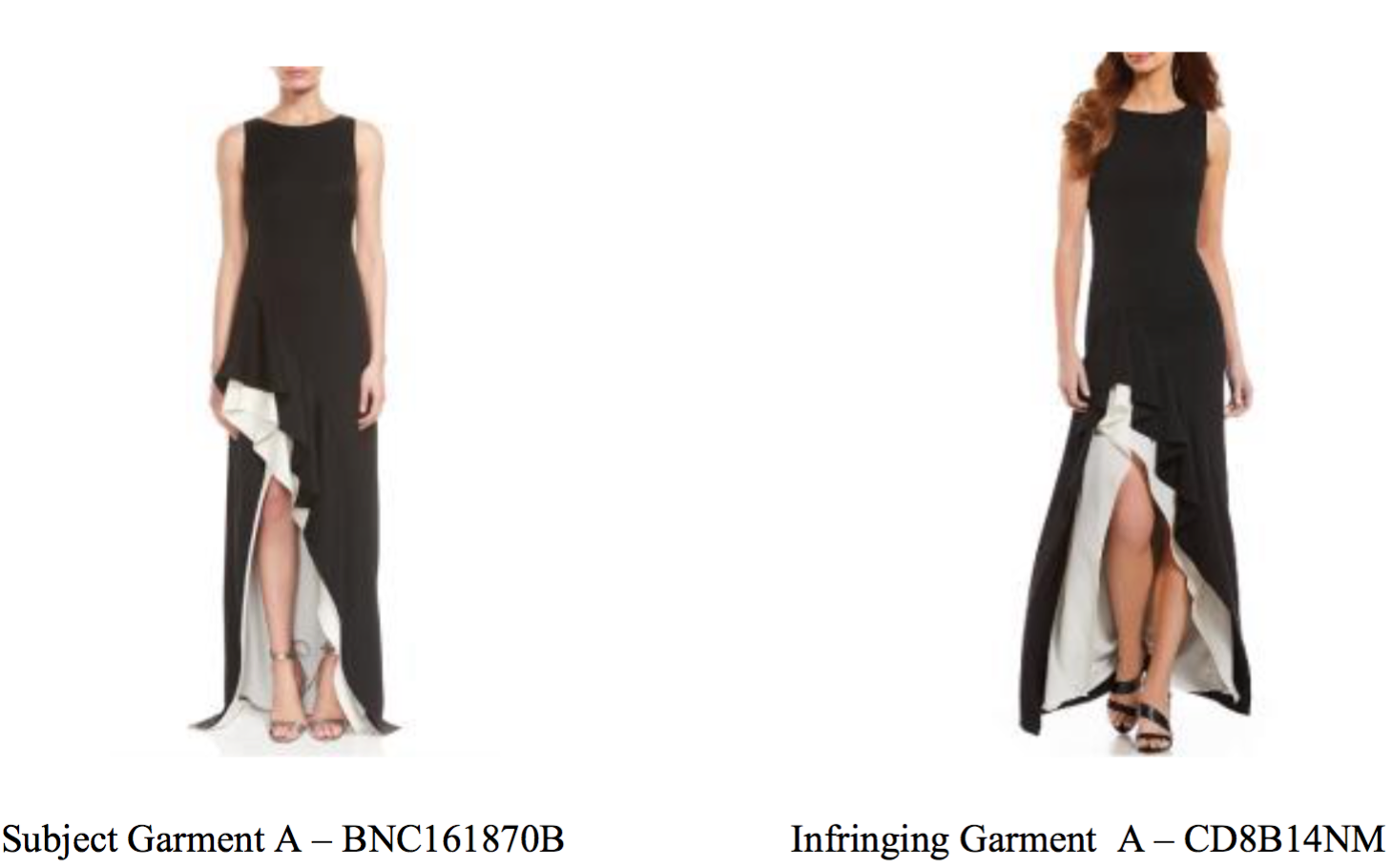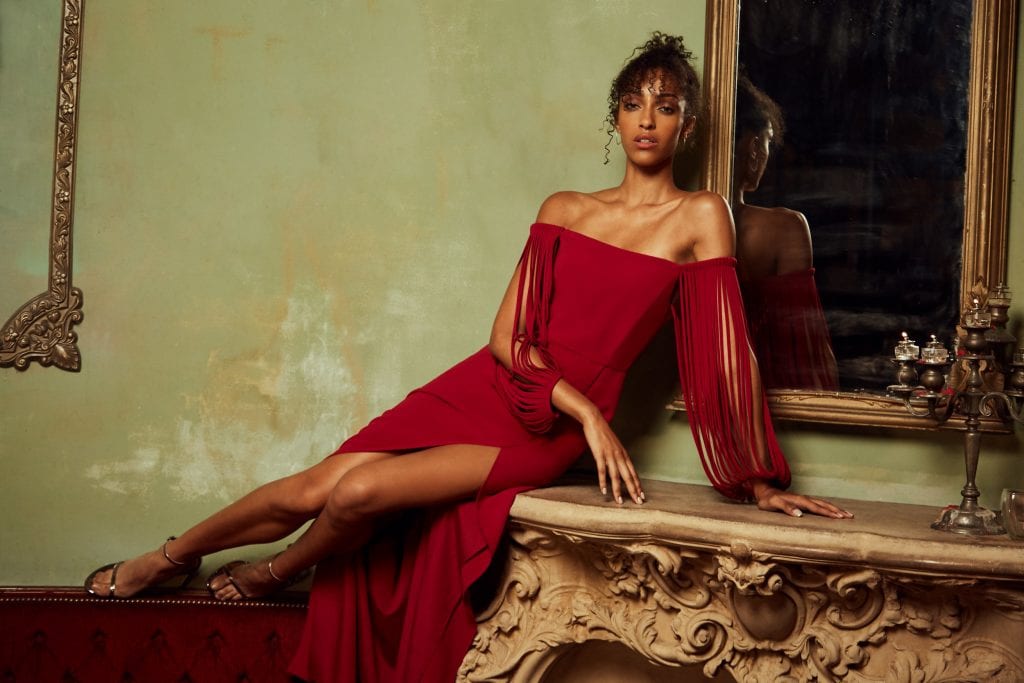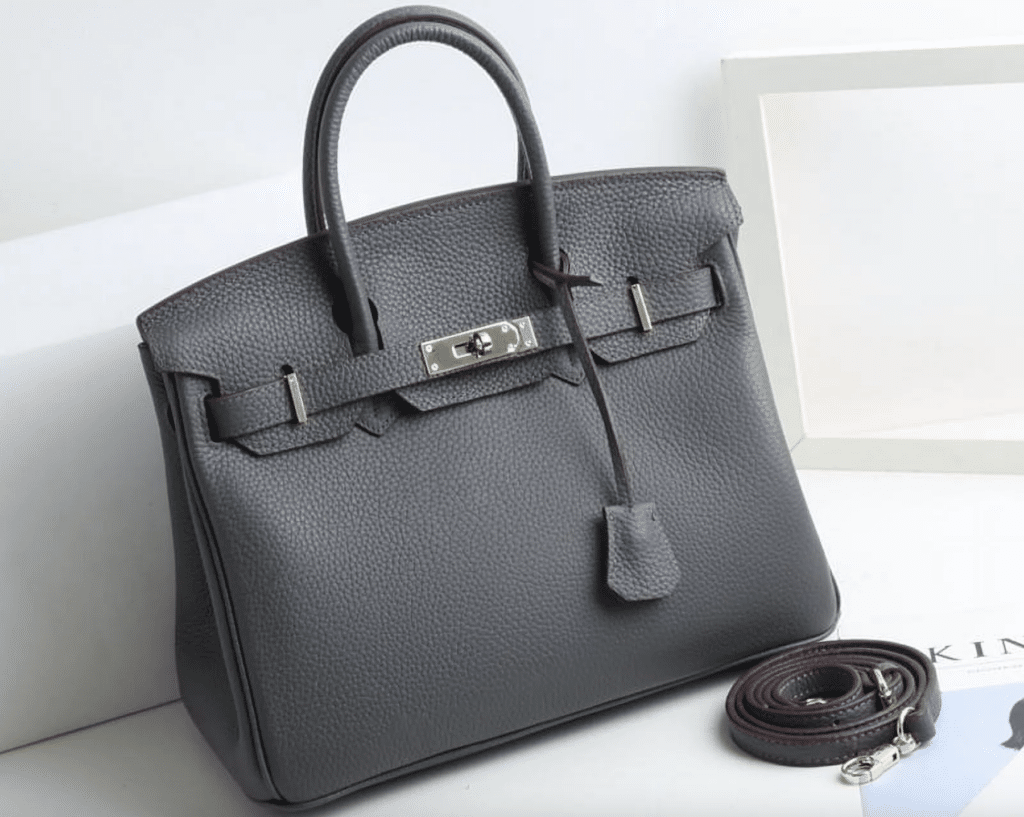In his heyday, Roy Halston Frowick had a hand in shaping the aesthetic of a decade. With a distinctly 70’s-era glamour, his tenure at his eponymous Halston label gave rise to an visual code that has become synonymous with wardrobes of Studio 54-going mega-stars like Bianca Jagger, Elizabeth Taylor, and Anjelica Huston. Pair that with one of the best-selling fragrances of all time and the late Halston succeeded in building a brand that continues to influence today’s runways, decades after his last collection.
That “influence” is at the center of a new legal fight that the Los Angeles-based brand has initiated against Calvin Klein. According to Halston’s complaint, which was filed last week in a California federal court, its design team created and offered for sale a number of dress designs which were subsequently copied by Calvin Klein’s CK brand licensee G-III Apparel, and offered for sale under the CK brand name.
Halston alleges that “it is apparent that the elements, materials, place, movement, centering, composition, colors, arrangement, overlay, appearance and structure of the [CK dresses] are substantially and confusingly similar, if not identical” to the original Halston dresses.
 Halston’s dress (left) & CK’s version (right)
Halston’s dress (left) & CK’s version (right)
One of the designs at issue, a dress with an a-symmetrical, cascading ruffle on the right side of the dress, amounts to “a three-dimensional textile design,” subject to a pending U.S. copyright registration (1-698445981), according to Halston’s complaint. (Halston only claims copyright protection for one of the three dress designs it includes in its complaint).
Citing the Star Athletica, L.L.C v. Varsity Brands case, in which the Supreme Court held that cheerleading uniform garments may, in fact, be protected by copyright law, Halston argues that its design is subject to copyright protection. The brand asserts that the dress “is unique in its use of an overlay to express movement, affixing fabric in a manner to affect the appearance, weight and asymmetrical flow of the design, including but not limited to incorporation of a gusset and tack in the flounce, and increasing the downward visual consistency and depth of the two colors used.”
With that in mind, Halston claims that Calvin Klein’s copycat version is not merely a knockoff but an infringement of its copyright.
(Note: Given copyright law’s unwillingness to protect useful things, such as garments and accessories as a whole, and only provide protection for “separable” elements, and with the difficulty that comes with attempting to separate most elements from the larger garment in mind, copyright infringement suits are relatively rare in the fashion for almost anything other than print or pattern elements).
As for all three of the allegedly copied dresses, Halston claims that Calvin Klein is on the hook for Unfair Competition and False Advertising as a result of “a number of false and misleading claims and/or claims that misrepresent the nature, characteristics, qualities or geographic origin of its goods.”
For instance, Halston cites language on Calvin Klein’s website, which states, “We embody authenticity and embrace individuality,” as well as language that guarantees that its goods are “free from claims of infringement.” Both statements are “false and misleading,” according to Halston, as the dresses at issue “were actually designed by HALSTON and these statements regarding the origin of its women’s apparel and accessories … have and are likely to continue to have influence over consumers’ and other third-party purchasing decisions.”
As a result of their alleged copying, unfair competition, and false advertising, Calvin Klein and G-III have not only “obtained direct and indirect profits they would not otherwise have realized,” they have caused Halston to “suffer an actual loss” and to continue to “suffer substantial damages to its business.” Halston is seeking an array of monetary damages, as well as injunctive relief, which would “temporarily, preliminarily, and permanently enjoin the defendants from using any false designation of origin or false description that can, or is likely to, lead the consuming public,” among other acts.
A representative for Calvin Klein told TFL, “We do not comment on pending litigation.”
* The case is Halston Operating Company LLC et al v. CALVIN KLEIN, INC. et al2:18-cv-08893-AB-JPR (C.D.Cal).











